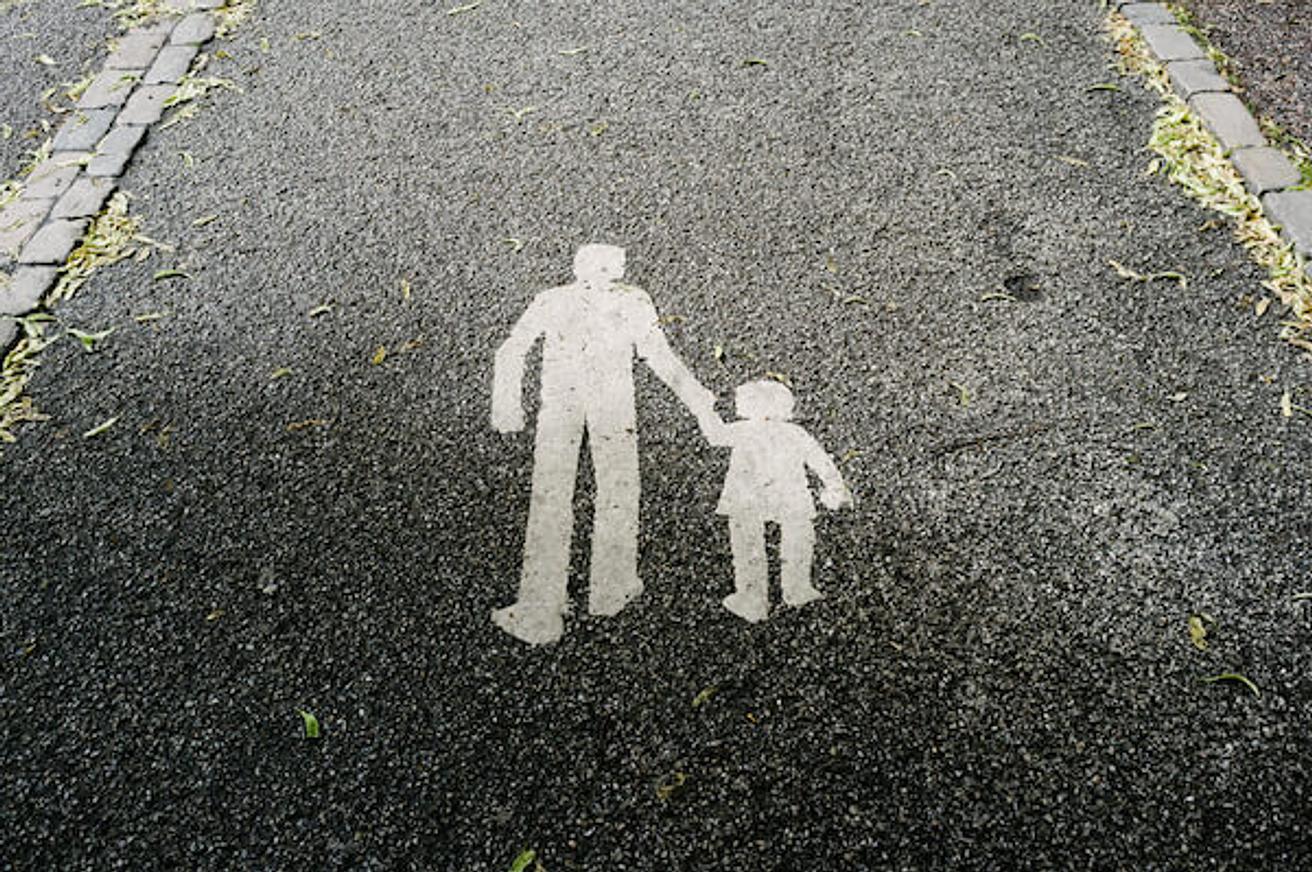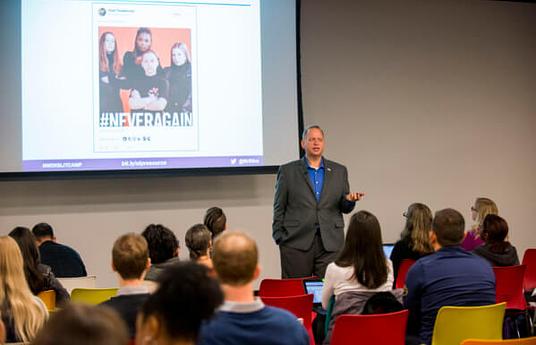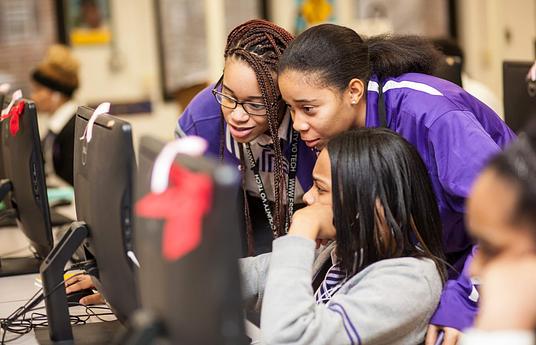A record number of 372.3 million children and youth have been impacted by the COVID-19 (Coronavirus) pandemic and as of 11 March, 39 countries in Asia, Europe, the Middle East, North America and South America have announced or implemented school and university closures (UNESCO, 2020). In this trying time, there is a pressing need for the education community to come together and ensure that quality education for all continues to be met.
At HundrED, we are working to ensure the continuity of essential services in education by collecting resources and best practices to share with our global education innovation community, who maybe in quarantine or proactively working to minimise its spread. A series of upcoming articles will provide recommendations for innovations and best practices that can support teachers and parents in such times of distress and often confinement.
In this first article, we will be sharing examples of innovations and how to use them at home, link to an innovation collection especially for individuals impacted by the Coronavirus pandemic and additional reading and resources.
XTALKSWORLDLISTENS
XtalksWORLDlistens is a free-to-use global platform and coaching programme for young people with poor online connectivity, but unique first-hand experiences the world could learn from. They find and showcase the untapped wisdom of teens in digitally hard to reach places. They coach them to hone their skills of communicating to a global audience of supporters in 50+ countries with confidence and authenticity.
How to use it?
Even though insisted, take this time to listen to your children and hear their stories. With XTalks you can turn these stories into small films that can be seen and shared with a global audience from over 50 countries.
The Playbook offers guidance on how to pick a topic, steps of filming, producing videos and editing them to make solid video blogs. Parents can help by discussing elements of storytelling as well as skills needed for successful oral presentations.
Take this as a unique opportunity for your children/students to share their personal stories not just with you but with the world!
If you have any questions, feel free to reach out directly to Alex Bell, through their innovation page here.
GLOBAL ONENESS PROJECT
The Global Oneness Project brings the world's global cultures alive in the classroom. They provide award-winning films and photo essays that explore cultural, social, and environmental issues and accompanying lesson plans using stories as a pedagogical tool to inspire growing minds. All for free.
How to use it?
We would encourage you to explore their online database offering high-quality films on themes representing various cultural, social, and environmental issues of the world. All the films are freely available online and come with teaching lesson plans aligned to various UN Sustainable Development Goals (SDGs)
For example, their award-winning documentary EarthRise explains the journey of the Apollo 8 astronauts who experienced the earth from the moon and how this impacted their lives. In one lesson, “Earthrise: Fostering Awe,” students explore how the emotion of awe felt by the Apollo 8 astronauts and the world helped them to experience the world as a shared home. A short clip from the film is included, depicting the moment the astronauts saw the Earth rising from the dark side of the moon.
If you have any questions, feel free to reach out directly to Cleary Vaughan-Lee, through their innovation page here.
CHECKOLOGY VIRTUAL CLASSROOM & NEWSLIT CAMP
Young people are dealing with the most challenging information ecosystem in human history, rife with misinformation, hoaxes and falsehoods that distort students’ understanding of their world. To become critical thinkers who demand the truth, they must develop news literacy skills.
News Literacy Project believes that news literacy education — learning how to know what to believe — is the most effective approach to meeting this challenge. The Checkology virtual classroom teaches students to separate fact from fiction, to understand the vital role of a free press in a democracy, and to become informed and engaged participants in civic life.
How to use it?
At the moment, there is a vast amount of media coverage on the coronavirus. The News Literacy Project has developed resources to help students navigate between what is fact and what is false. The ability to critically reflect on the news is a much-needed skill for students. Parents can use this opportunity to read different news stories via multiple platforms whether that be articles, social media, news outlets and discuss what makes information credible and how to differentiate between non-credible and credible resources.
If you have any questions, feel free to reach out directly to their team, through their innovation page here.
PROJECT EVERYONE: WORLD’S LARGEST LESSON
Project Everyone: World’s Largest Lesson produces free and creative resources for educators to teach lessons, run projects and stimulate action in support of the UN Sustainable Development Goals. At the heart of our resources sit animated films written by Sir Ken Robinson, animated by Aardman and introduced by figures students know and respect, like Emma Watson, Serena Williams, Malala Yousafzai, Kolo Touré, Neymar Jr, Hrithik Roshan and Nancy Ajram. These films establish a context for the Goals and inspire students to use their creative powers to support and take action for them. All for free.
How to use it?
Use Project Everyone platform to identify what you and your children/students most passionately care for. Explore Sustainable Development Goals which are working to help your cause and start exploring the resources available on the platform. From free animated videos, lesson plans to worksheets, you can find it all! There is even a free online course for teachers and parents who want to teach the Global Goals!
If you have any questions, feel free to reach out directly to Alison Bellwood, through their innovation page here.
ADDITIONAL RESOURCES
NY Times: Coronavirus Resources: Teaching, Learning and Thinking Critically
Education Week: 6 Lessons Learned About Remote Learning During the Coronavirus Outbreak
EdSurge: Preparing to Take School Online? Here Are 10 Tips to Make It Work
OPPI: Advice for Schools on Scenario Planning for Coronavirus
The current state of education globally is seeing a shift, especially in relation to learning environments. With the increasing amount of schools focusing on online delivery methods as well as parents playing more active roles in their students' education, we see this as an opportunity to learn and connect virtually with different practices and solutions worldwide.
At HundrED, we are continuing to collect resources that will be beneficial to anyone affected by the coronavirus. Check out our special collection of innovations ensuring Quality Education For All during COVID-19.



